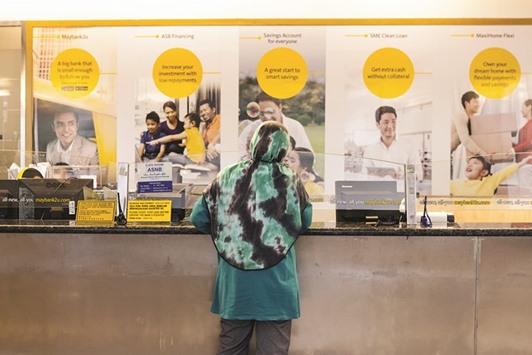A venture capital fund based on Islamic finance principles, claiming to be the first of its kind globally, is set to be initiated by the end of the month as the result of a joint initiative of the Islamic Development Bank (IDB) and Malaysia’s state-owned investment firm Malaysia Venture Capital Management Berhad. A memorandum of understanding is expected to be signed before the end of May after final details have been discussed at the IDB headquarters in Jeddah.
According to Irwan Serigar Abdullah, secretary general to the Treasury at Malaysia’s Ministry of Finance, the initial fund size would be $100mn and could be bulked up later.
“If the fund is successful, we will invite other parties to join the venture fund,” he told a press conference in Kuala Lumpur in early May.
In the first stages, the venture capital fund would be utilised to finance startup companies in Malaysia and the entire Southeast Asia region and could later be extended to finance entrepreneurial initiatives in other Islamic countries, including the Gulf Cooperation Council (GCC). It would give Islamic investors the opportunity to participate in startup companies that adhere to Shariah principles. Such startups have been on the rise lately, but struggled to secure finance as Islamic venture capital is still rare.
Irwan said he was confident that interest in startup financing is growing in Islamic countries, particularly in Malaysia and Indonesia, but also in Egypt and the UAE, noting that the market is in need for a push as startup ecosystems in the Muslim world are still lagging behind in comparison to Western countries.
“For the beginning, we are looking at partnerships in Indonesia and Dubai, and as a further move with other Middle East countries to invest in Shariah-compliant young companies,” he said, adding that the fund will focus on growth sectors such as financial technology, digital technology, healthcare, education and logistics and aims at funding as much as 200 startups.
“That way, the total investment of the fund can run into billions and significantly contribute to foreign direct investment in those countries,” Irwan stated.
Islamic venture capital is mostly following the Islamic concept of mudharabah, a form of partnership where a bank or a capital provider, in this case the Islamic venture capital fund, enters an agreement with an entrepreneur to kick off business activity. The parties are called rabb al-mal (investor) and mudharib (entrepreneur). Alternative structures include Musharakah and Wakalah which are more complex investment partnerships involving a larger number of investors and agents.
In all structures, profits made are shared between the capital provider and the entrepreneur in line with a predetermined ratio. In case of a loss, the bank loses the capital, while the entrepreneur loses his provision of making business. That justifies the bank’s claim to part of the profit. The profit-sharing continues until the granted capital is repaid. The bank is compensated for the time value of its money in the form of a floating rate that is pegged to the debtor’s profits. Money is invested only in projects and ventures that adhere to Islamic principles.
While there is a large number of startup business that qualify for Islamic venture capital, some sectors are excluded, particularly financial services based on interest, businesses related to gaming and gambling, conventional insurance, production or sale of non-halal products including tobacco, non-permissible entertainment activities, stock broking or share trading in Shariah non-compliant securities, as well as hotels, resorts and tourism-related activities that are not Shariah-compliant.
The new fund, however, despite its claims, is in fact not the first of its kind in the Islamic world to explicitly target Muslim startups and entrepreneurs. A comparable fund is Venture Capital Bank in Bahrain, which focuses on the GCC and North Africa region. Qatar Venture Capital, in turn, is another such fund focused on technology, sustainable energy and healthcare and also funding start-ups in fashion, media, art and halal food.

A customer stands at a service counter inside a combined Malayan Banking (Maybank) and Maybank Islamic bank branch in Kuala Lumpur. The Islamic venture capital is mostly following the Islamic concept of mudharabah, a form of partnership where a bank or a capital provider, in this case the Islamic venture capital fund, enters an agreement with an entrepreneur to kick off business activity.
